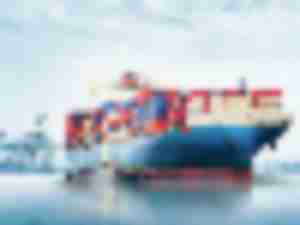Global shipping trends: What to expect in 2020
Special to the AJOT Mike Short, president of global forwarding, C.H. Robinson
Long Beach’s Cordero says investment in Zero Emissions key to long-term growth
Critics says the cost of doing business at Long Beach and Los Angeles is high and due in part to tough regulations on diesel emissions, however Mario Cordero, executive director of the Port of Long Beach remains optimistic.
Investment flows into Jamaica – Will the Kingston’s Container Terminal upgrade help?
Unbeknownst to many, a US$452 million port modernization project is moving towards completion in Kingston, and it’s already remaking Jamaica’s major port.
USMCA agreement nearing reality…with a remarkable feeling of status quo
The US-Mexico-Canada free trade agreement will become a reality, now that US House of Representatives has voted to approve the treaty through implementing legislation.
Trump Administration supports new rules that industry says will weaken the Jones Act and outsource US jobs
The Trump Administration is supporting new U.S. Customs rules that the Offshore Marine Services Association says will weaken the Jones Act and outsource American jobs in the oil, gas and offshore wind farms industries.
Canada not poised to ratify USMCA before February
With Canadian legislators not due back from a winter break until January 27, the chances appear virtually nil that Canada will ratify before February at the earliest the revised North American free trade accord re-named the US-Mexico-Canada Agreement (USMCA) signed on December 10.
The Brexit reality: Now comes the hard part
Prime Minister Boris Johnson should be able to pass easily through Parliament a Brexit-related law and take Britain out of the EU by January 31, 2020, the deadline demanded by other European leaders.
California ports support sea level defense
The majority of California ports came together on December 3rd to announce their plans for improved defense against sea level rise recognizing that climate change poses a serious threat to U.S. ports and coastal communities.
California Ports present storm and sea level defense plans at December 3rd conference in Oakland
California ports will be presenting their plans to defend against higher sea levels, storm surges and flooding at the “Strategies for Storms, Flooding and Sea Level Defense” conference taking place on December 3rd at Scott’s Seafood in Oakland, California.
Delta Airlines lays the groundwork for major air cargo expansion
In a recent presentation to the JFK Air Cargo Association, Andy Kirschner, director of Delta Cargo Sales for the Americas made a compelling case for Delta’s air cargo growth strategy.
© Copyright 1999–2025 American Journal of Transportation. All Rights Reserved










